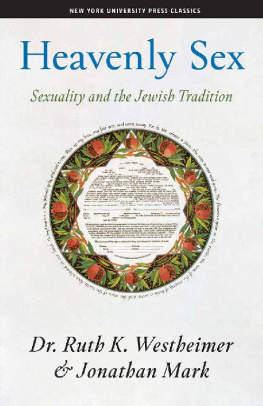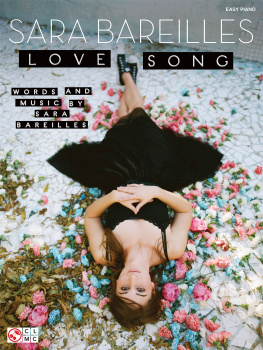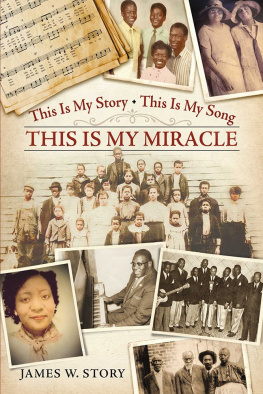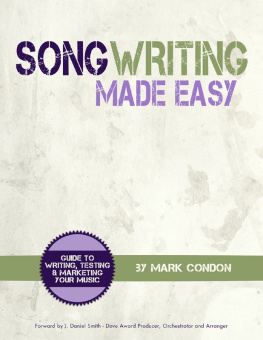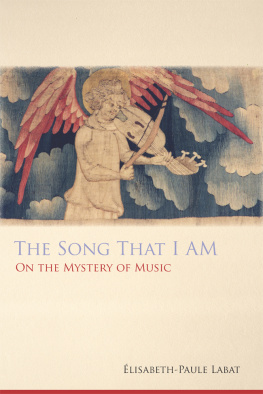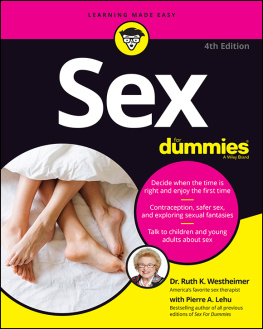Dr. Ruth K. Westheimer - Musically Speaking: A Life Through Song
Here you can read online Dr. Ruth K. Westheimer - Musically Speaking: A Life Through Song full text of the book (entire story) in english for free. Download pdf and epub, get meaning, cover and reviews about this ebook. year: 2013, publisher: University of Pennsylvania Press, genre: Non-fiction. Description of the work, (preface) as well as reviews are available. Best literature library LitArk.com created for fans of good reading and offers a wide selection of genres:
Romance novel
Science fiction
Adventure
Detective
Science
History
Home and family
Prose
Art
Politics
Computer
Non-fiction
Religion
Business
Children
Humor
Choose a favorite category and find really read worthwhile books. Enjoy immersion in the world of imagination, feel the emotions of the characters or learn something new for yourself, make an fascinating discovery.

- Book:Musically Speaking: A Life Through Song
- Author:
- Publisher:University of Pennsylvania Press
- Genre:
- Year:2013
- Rating:5 / 5
- Favourites:Add to favourites
- Your mark:
Musically Speaking: A Life Through Song: summary, description and annotation
We offer to read an annotation, description, summary or preface (depends on what the author of the book "Musically Speaking: A Life Through Song" wrote himself). If you haven't found the necessary information about the book — write in the comments, we will try to find it.
Music, I have come to realize, is for me a kind of golden thread running through my life. It has helped maintain my connection with the past that otherwise might have been severed by catastrophe and time. I am often askedindeed, I often wonder myselfwhy it is that I should always have had such joie de vivre in the face of the losses and dislocations I had to endure in my early years. The answer I always gave was that the warmth and security of my early childhood had a remarkable power and influence. This is certainly true. But now I have realized that there is another part to the answer. And that is music.from the introduction
Who among us does not have a song that triggers vivid memoriesof jubilation, of belonging, of sorrow, of love? In Musically Speaking, Dr. Ruth K. Westheimer, one of Americas most beloved personalities, has written a warm and contemplative book about the role music has played in her life and the ineradicable traces it has left on her thoughts, emotions, her very being.
In this memoir through song, Dr. Ruth invites us to share her story from a uniquely musical perspective. By the time she was thirty, Ruth Westheimer had lived in five countries, each with a distinctive musical culture, each with a different hold on her sensibility. For the first ten years of her life, the comforting melodies of childhood helped drown out the anthems of Nazism to be heard elsewhere in her native Germany; as an adolescent refugee in Switzerland, she came to be aware that, however loudly she sang the patriotic songs of the land that gave her shelter, she could never truly be at home there.
Present at the creation of the modern state of Israel, she sang and danced to the new music of a new nation; as a young woman eagerly absorbing all that Paris had to offer in the way of romance and worldliness in the early 1950s, the songs of Edith Piaf, Mouloudji, and Yves Montand were her tutors. An almost accidental emigration to America brought new challenges and new stability, as she became a wife, mother, and professional; tremendous and unforeseen celebrity came later, and with it the giddy opportunity to indulge her love of music as never before.
Always, the classical repertoire of Mozart, Haydn, Beethoven, and Brahms has drawn Westheimer to a German culture that has belongedand not belongedto her throughout her life. And always, the music of the Jewish tradition has given her strength and comfort beyond words.
Affording a view of Dr. Ruth from a rare private vantage point, Musically Speaking offers wondrous testimony to the resilience of the human spirit. This is a book full of color, verve, humor, and wisdom, unfolding gracefully through the beloved music of the Jewish holidays, the lullabies of childhood, the songs that sustained an orphan and roused the courage of a young woman, the melodies that enable a widow grieving for her husband to recall, from deep within the years of love, companionship, and happiness.
Dr. Ruth K. Westheimer: author's other books
Who wrote Musically Speaking: A Life Through Song? Find out the surname, the name of the author of the book and a list of all author's works by series.

